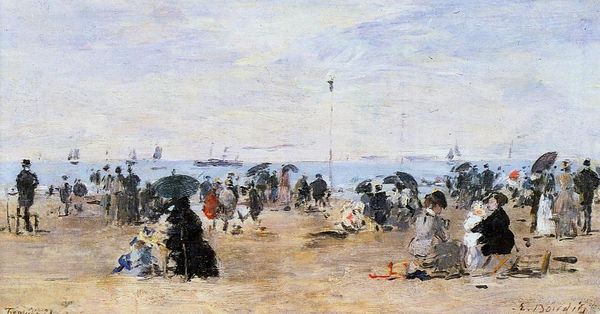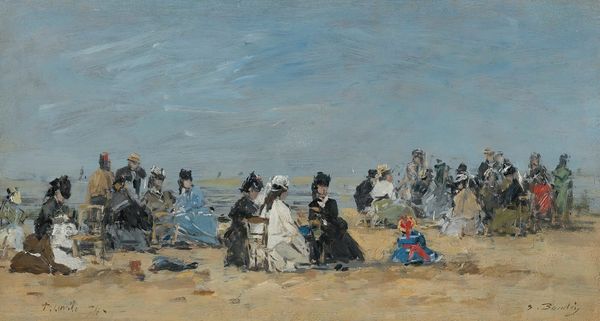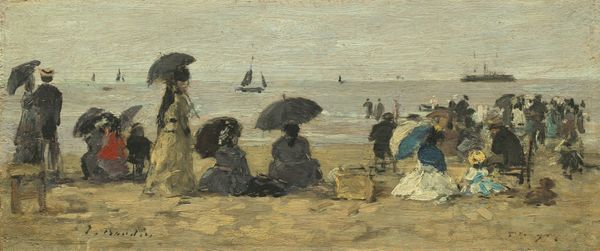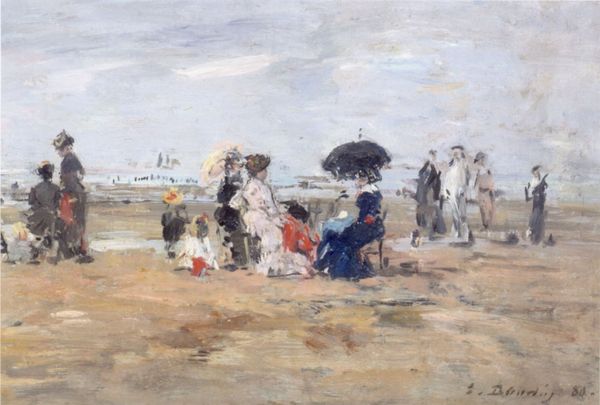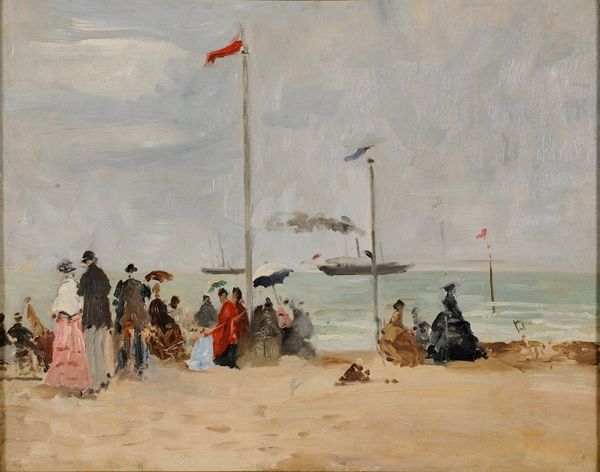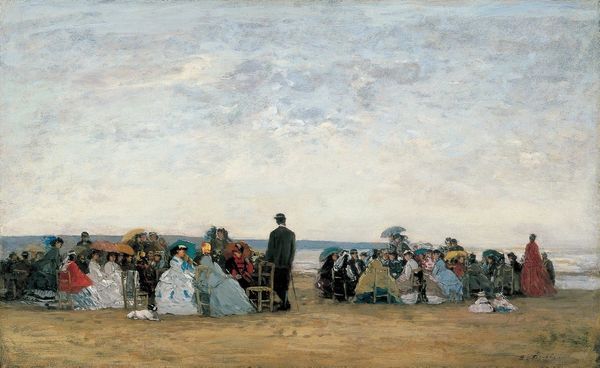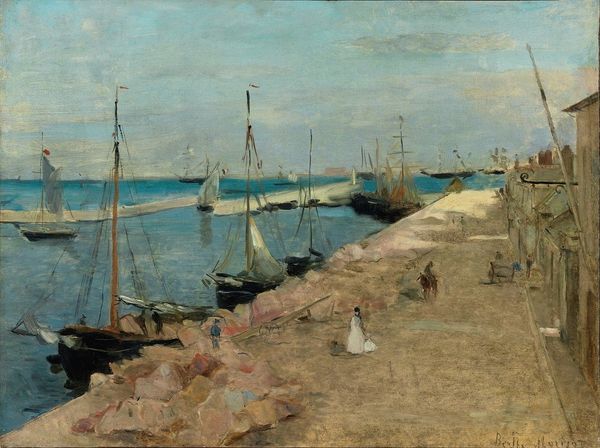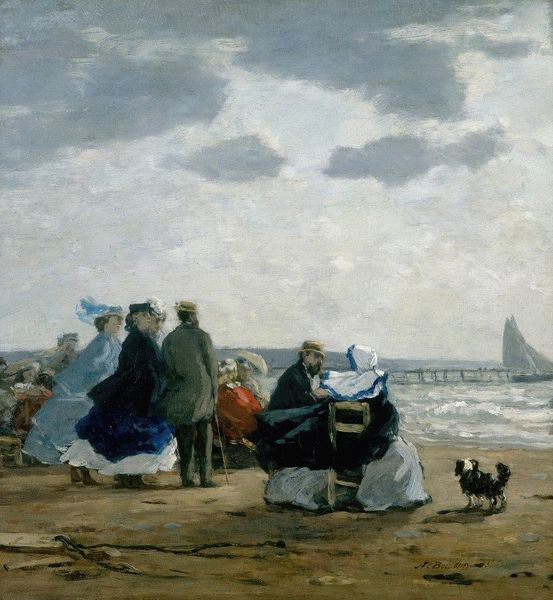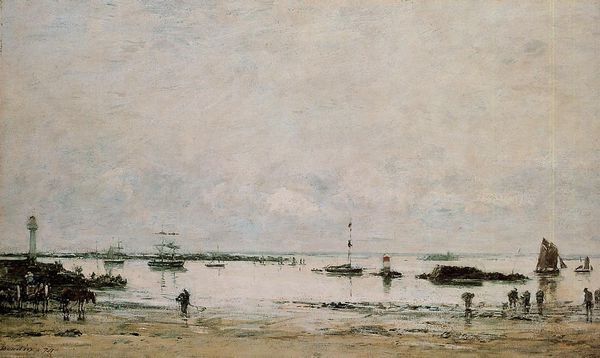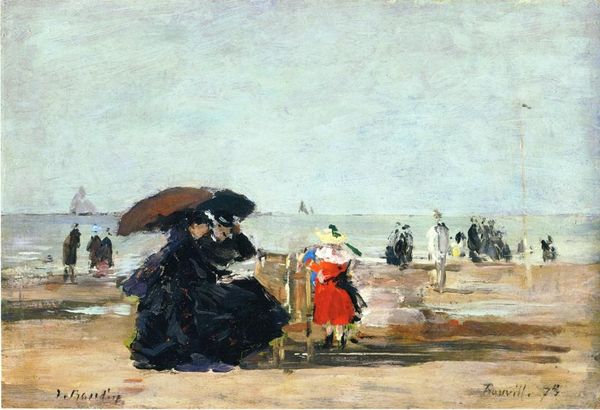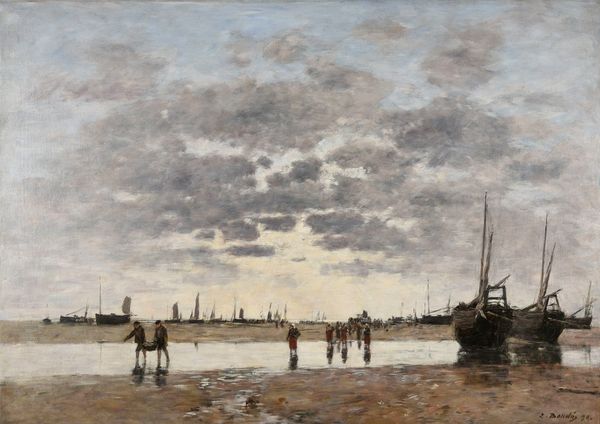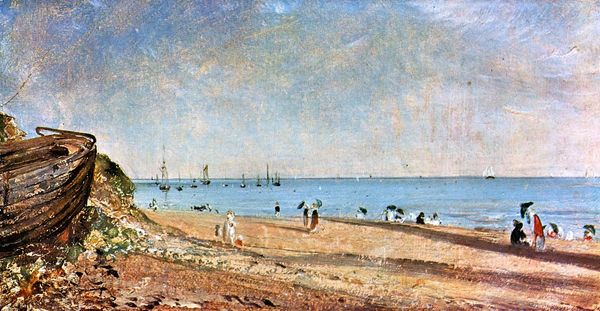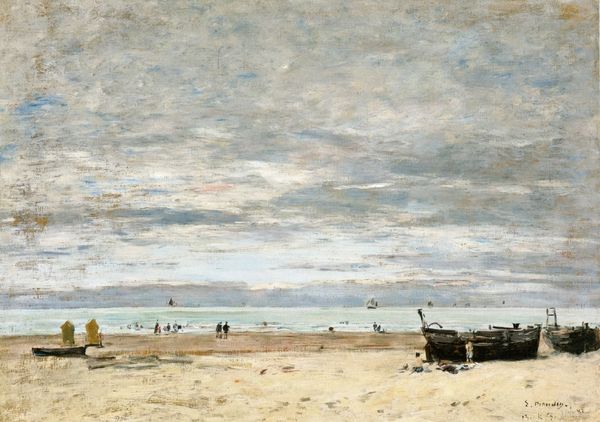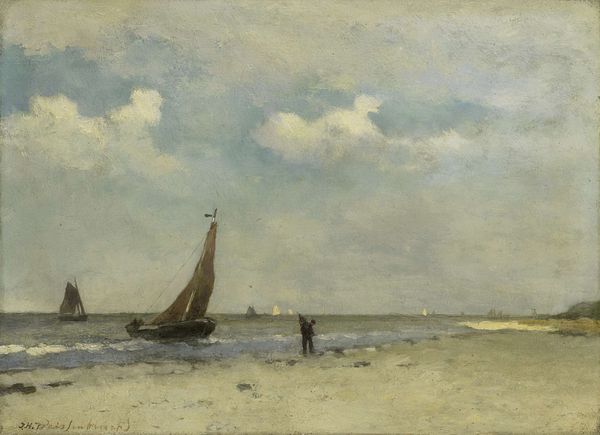
plein-air, oil-paint
#
flâneur
#
impressionism
#
plein-air
#
oil-paint
#
landscape
#
oil painting
#
cityscape
#
genre-painting
Copyright: Public Domain: Artvee
Curator: Here we have Jean Béraud's "Les berges de la Seine," painted in 1880. It presents a leisurely scene along the Seine. Editor: It's so grey! The brushwork gives the scene a wonderful feeling of wet sand and misty air, but it's undeniably muted, dominated by earthy tones and the silver of the river. Curator: It captures a moment in the modernization of Paris. The burgeoning industrial landscape in the background juxtaposed with the bourgeoisie strolling with their dogs reveals a city in transition. It embodies the flâneur theme, doesn't it? Observing modern life, almost clinical. Editor: You can almost smell the damp wool of their coats. Looking at the materiality, it appears Béraud applied the oil paint thinly, letting the weave of the canvas peek through in places. It contributes to the light effect and lends an interesting texture to the beach and water. Curator: Precisely, the texture and composition highlight a stark contrast between the figures in dark formal wear and the rather barren landscape. It subtly comments on class divisions within the evolving urban environment of Paris, with smoke billowing on the right side hinting at how the industrial classes supported this leisure. Editor: I am thinking about Béraud's application of plein-air techniques to record what was in front of him. Yet, it wasn't pure observation. The labor isn't obviously visible like, say, Courbet might insist upon, but it underpins everything. It suggests a society built on material processes, doesn’t it? Curator: The narrative Béraud crafts here places social roles front and center. The leisure class experiencing and consuming Paris, enabled by the transformation of the city itself and less seen classes labor in that urban sprawl. Editor: It's a strangely affecting image. I came into this thinking that its value rests with his application of paint, but Béraud makes sure that we contemplate a society taking shape through material progress and inequality. Curator: Indeed, Béraud encourages us to reflect on who has access to the riverbanks, and the implications of modern Parisian life as a whole.
Comments
No comments
Be the first to comment and join the conversation on the ultimate creative platform.
